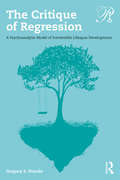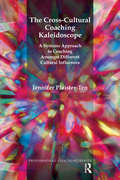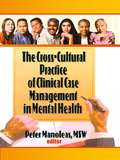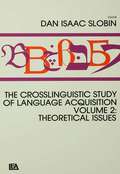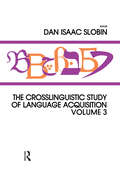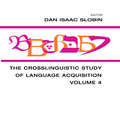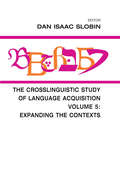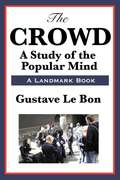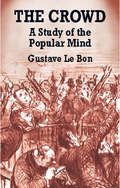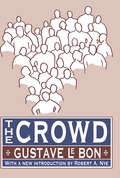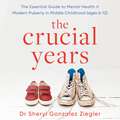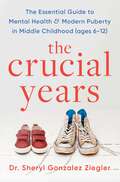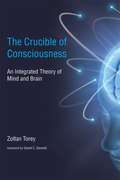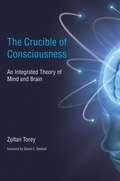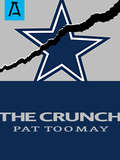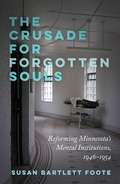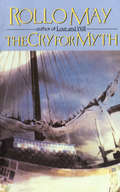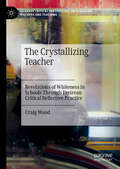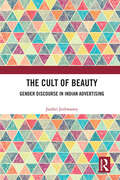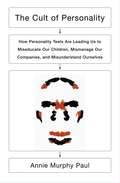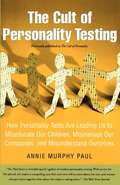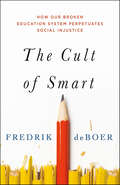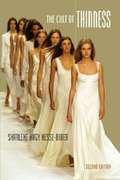- Table View
- List View
The Critique of Regression: A Psychoanalytic Model of Irreversible Lifespan Development (Psychoanalysis in a New Key Book Series)
by Gregory S. RizzoloThe Critique of Regression presents the most in-depth critique of regression available in the psychoanalytic literature, whilst presenting the first psychoanalytic theory of irreversible lifespan development. The clinical implications are amply demonstrated in three chapter-length psychoanalytic cases. The most important implication is that when we revisit the past, in a private memory or in an analytic session, we remake it afresh in light of the present. The analysis of the past is always, in this sense, an exploration of the present. Gregory S. Rizzolo demonstrates that where we think we see returns, or regressions, to past stages of the lifespan, we in fact find the emergence of novel structures in subjective experience. Rizzolo considers the work of human development to be a work of mourning in which we lose, internalize and keep re-working the residue of a past to which we never return. The traditional notion of regression, which supports the fantasy of a literal return, operates as an intellectual defense against the mourning process. To critique the concept is to address the defense and to confront the loss of past relationships and of past versions of selfhood inherent in development. From the work of mourning emerge ever-new configurations of desire, defense and subjective meaning. The task of analysis is to cultivate, amidst the repetition of familiar patterns, the potential for novelty at play in each moment. This thought-provoking work will interest new and experienced psychoanalytic clinicians alike, who want to go beyond traditional theories of development to a contemporary look at how we develop inexorably across the lifespan.
The Cross-Cultural Coaching Kaleidoscope: A Systems Approach to Coaching Amongst Different Cultural Influences
by Jennifer Plaister-TenCoaching has emerged from a Western, largely Anglo-American, perspective that may not be appropriate across cultures, given the multi-cultural nature of societies and workplaces today and the working practice of virtual teams. This has repercussions for the coaching profession. There is little knowledge about the constituent factors of cross-cultural coaching; or the attitudes, skills and knowledge required to practice in a global market. Therefore, there is little sharing of best practice that in turn has an impact upon coaching competency. This book shows a unique approach to describing the impact of culture in the coaching relationship. It demonstrates how culture can affect our perceptions, thoughts and emotions, influence our choices and impact our behaviour. It identifies the need for the coach to become adept at raising awareness of cultural influences and to reframe psychological constructs often thought to have universal meaning; such as responsibility.
The Cross-Cultural Practice of Clinical Case Management in Mental Health (Haworth Social Work Practice Ser.)
by Peter ManoleasDiscover a culturally competent model of clinical case management in mental health practice settings. In The Cross-Cultural Practice of Clinical Case Management, author Peter Manoleas synthesizes some of the existent thinking on case management in cross-cultural psychotherapy settings and develops an effective model of clinical case management for mental health practitioners. The person-in-environment approach leads mental health professionals to realize that case managers and their clients must deal with a variety of cultures within the treatment environment. Rehabilitation programs, substance abuse programs, public assistance, the police, and especially psychiatry itself, are each characterized by their own 'cultures.’These may, at times, conflict with or present significant dissonance with the client's own ethnic culture. The Cross-Cultural Practice of Clinical Case Management advocates that the role of “culture broker” be added to the list of activities for effective clinical case managers. Several of the major ethnic groups represented in public mental health populations are examined, as well as other topics relevant to the daily practice of mental health professionals: Effective cross-cultural crisis intervention The culture of homelessness Women and the mental health system Asians and Pacific Islanders Latinos African Americans Native Americans Seriously Emotionally Disturbed ChildrenThe Cross-Cultural Practice of Clinical Case Management is of interest to practicing mental health professionals in the public sector as those systems convert from individual therapy to case management models of service delivery. Increasing numbers of ethnic minorities in public systems and the emphasis on cultural competence will make all of the topics of interest to many readers.
The Crosslinguistic Study of Language Acquisition: Volume 2: Theoretical Issues
by Dan Isaac SlobinSee Volume I (0-89859-367-0) for full description and TOC.
The Crosslinguistic Study of Language Acquisition: Volume 3
by Dan Isaac SlobinExtending the tradition of this series, which has become a standard reference work in language acquisition, this volume contains chapters on seven more languages, including a section on ergative languages. Languages in this volume include: Georgian; Greenlandic; K'iche Mayan; Warlpiri; Mandarin; Scandinavian and Sesotho.
The Crosslinguistic Study of Language Acquisition: Volume 4
by Dan Isaac SlobinContinuing the tradition of this series, which has become a standard reference work in language acquisition, Volume 4 contains chapters on three additional languages/language groups--Finnish, Greek, and Korean. The chapters are selective, critical reviews rather than exhaustive summaries of the course of development of each language. Authors approach the language in question as a case study in a potential crosslinguistic typology of acquisitional problems, considering those data which contribute to issues of general theoretical concern in developmental psycholinguistics and linguistic theory. Each chapter, therefore, provides the following: * Grammatical Sketch of Language. Brief grammatical sketch of the language or language group, presenting those linguistic facts which are relevant to the developmental analysis. * Sources of Evidence. Summary of basic sources of evidence, characterizing methods of gathering data, and listing key references. * Overall Course of Development. Brief summary of the overall course of development in the language or language group, giving an idea of the general problems posed to the child in acquiring a language of this type, summarizing typical errors, domains of relatively error-free acquisition, and the timing of acquisition--areas of the grammar that show relatively precocious or delayed development in crosslinguistic perspective. * Data. Specific developmental aspects of the language examined in depth, depending on each individual language and available acquisition data. * Conclusions. An interpretive summary of theoretical points raised above, attending to general principles of language development and linguistic organization suggested by the study of a language of this type, plus comparisons with development of other languages.
The Crosslinguistic Study of Language Acquisition: Volume 5: Expanding the Contexts
by Dan Isaac SlobinIn this final volume in the series, the contributors attempt to "expand the contexts" in which child language has been examined crosslinguistically. The chapters build on themes that have been touched on, anticipated, and promised in earlier volumes in the series. The study of child language has been situated in the disciplines of psychology and linguistics, and has been most responsive to dominant issues in those fields such as nativism and learning, comprehension and production, errors, input, and universals of morphology and syntax. The context has primarily been that of the individual child, interacting with a parent, and deciphering the linguistic code. The code has been generally treated in these volumes as a system of morphology and syntax, with little attention to phonology and prosody. Attention has been paid occasionally to the facts that the child is acquiring language in a sociocultural setting and that language is used in contexts of semantic and pragmatic communication. In addition, there has been a degree of attention paid to the interactions between language and cognition in the process of development. As for individual differences between children, they have been discussed in those studies where they could not be avoided, but such variation has rarely been the focus of systematic attention. Differences between individual languages have been of great interest, but these differences have not often been placed in a framework of systematic typological variation. And although languages and their grammars change over time, the focus of attention on the individual child learner has generally led to neglect of explanatory principles that are best found on the level of linguistic diachrony, rather than the level of innate ideas or patterns of learning and cognition in the individual child. The chapter authors seek to explore these neglected contexts in more depth.
The Crowd
by Gustave Le BonThe Crowd: A Study of the Popular Mind is a brilliant treatise on the workings of crowds. Gustave Le Bon examines many different kinds of crowds and how they work. He differentiates between different kinds of crowds such as mobs, juries, elected bodies, and simple crowds. This landmark book is one of the most influential books ever written on this subject. An important book for anyone studying or working in the fields of sociology, law, and psychology.
The Crowd: A Study of the Popular Mind
by Gustave Le BonOne of the most influential works of social psychology in history, The Crowd was highly instrumental in creating this field of study by analyzing, in detail, mass behavior. The book had a profound impact not only on Freud but also on such twentieth-century masters of crowd control as Hitler and Mussolini — both of whom may have used its observations as a guide to stirring up popular passions. In the author's words, "The masses have never thirsted after the truth. Whoever can supply them with illusions is easily their master; whoever attempts to destroy their illusions is always their victim."Although the volume focuses on crowd psychology, it is also brilliantly instructive on the effects of the generally accepted beliefs of a nation's citizenry on the processes of history. Among the topics covered here are general characteristics and mental unity of the crowd; the crowd's sentiments and morality; its ideas, reasoning power, and imagination; opinions and beliefs of crowds and the means used by leaders to persuade; classification of crowds, including criminal and electrical assemblages, as well as the functioning of criminal juries and parliamentary assemblies.A must-read volume for students of history, sociology, law, and psychology, The Crowd will also be invaluable to politicians, statesmen, investors, and marketing managers.
The Crowd: Gustave Lebon And The Crisis Of Mass Democracy In The Third Republic (Sage Studies In 20th Century History #Vol. 2)
by Gustave Le BonGustav Le Bon's The Crowd is not only a classic, but one of the best-selling scientific books in social psychology and collective behavior ever written. Here, Le Bon analyzes the nature of crowds and their role in political movements. He presents crowd behavior as a problem of science and power, a natural phenomenon with practical implications. Originally published in 1895, Le Bon's was the first to expand the scope of inquiry beyond criminal crowds to include all possible kinds of collective phenomena. Its continuing significance is evident even in the Los Angeles riots of 1992 in which Le Bon's theories were citedin testimony.Le Bon emphasizes the various areas of modern life where crowd behavior holds sway, particularly political upheavals. He focuses on electoral campaigns, parliaments, juries, labor agitation, and street demonstrations. At the same tune, his treatment of crowds is far from complimentary. He likens crowds to "primitive beings," social formations barkening back to the evolutionary origins of humankind. Le Bon believed that ideas and images spread through a crowd by means of contagion, an automatic process that produces a state of transitory madness in its victims, extinguishing reason and will. Yet he does more than dwell on the pathologies of crowd life; he also writes of the heroism, the generosity, and the sacrifices of crowds, of the indispensable roles they have played in erecting the pillars of modern civilization.In a new introduction to this edition, Robert Nye presents a broad analytical understanding of the relationship between power and knowledge hi crowd theory. He also discusses the historical circumstances and the various personalities who have shaped our understanding of crowds. Nye emphasizes The Crowd's continuing usefulness to cultural historians, psychologists, sociologists, and political scientists. He also places Le Bon in a rich tradition of European social theory.
The Crucial Years: The essential guide to mental health and modern puberty in middle childhood (ages 6-12)
by Dr Sheryl ZieglerA paradigm-shifting guide for parents and caregivers, this book offers insights, strategies and understanding to navigate middle childhood (ages 6-12). Dr. Sheryl Ziegler, a seasoned clinical psychologist and mother, highlights ways to foster resilience, encourage open communication and build lasting connections during this crucial period. A pivotal sea change is happening in children's development. The age of puberty has been trending earlier for decades and now starts as young as 8 years old in girls and 9 in boys. Bullying doesn't just happen on the playground, but over text and DM. Depression and anxiety are drastically on the rise. Couple earlier puberty with ill-equipped, developing brains and the onslaught of new media and stressors that never existed when we were kids, and it's clear that parents need a new guide to raise this new generation. The Crucial Years is your essential handbook to navigating the often misunderstood and overlooked years of middle childhood (ages 6-12). As a mother and clinical psychologist, Dr. Sheryl Ziegler knows first-hand how challenging these years can be - yet she also recognizes that this is a tender age and pivotal opportunity to connect with your child before adolescence. Dr. Ziegler masterfully unlocks the enigma surrounding modern puberty and offers evidence-based strategies, interventions and answers to middle childhood's most perplexing questions and concerns. In these pages she provides: - Science-based advice to recognize the first signs of puberty and navigate the changes to come. - Candid and actionable guidance for getting your kids to talk about anxiety, depression and their complicated feelings. - Insight into the changing world of gender and sexual identity, and how to guide your child through this complicated new landscape. - A thoughtful and sensitive discussion of how race intersects with puberty and mental health, and how all parents can approach this mindfully and inclusively. - A clear explanation of the invisible threads linking mood swings, self-image and social media exposure. - Road-tested, real-world guidance to handle bullies, mean girls and other friendship and social challenges. The Crucial Years gives you everything you need to guide your child through the hazards and thrills of puberty and help them emerge as well-rounded, confident young adults.
The Crucial Years: The essential guide to mental health and modern puberty in middle childhood (ages 6-12)
by Dr Sheryl ZieglerA paradigm-shifting guide for parents and caregivers, this book offers insights, strategies and understanding to navigate middle childhood (ages 6-12). Dr. Sheryl Ziegler, a seasoned clinical psychologist and mother, highlights ways to foster resilience, encourage open communication and build lasting connections during this crucial period. A pivotal sea change is happening in children's development. The age of puberty has been trending earlier for decades and now starts as young as 8 years old in girls and 9 in boys. Bullying doesn't just happen on the playground, but over text and DM. Depression and anxiety are drastically on the rise. Couple earlier puberty with ill-equipped, developing brains and the onslaught of new media and stressors that never existed when we were kids, and it's clear that parents need a new guide to raise this new generation. The Crucial Years is your essential handbook to navigating the often misunderstood and overlooked years of middle childhood (ages 6-12). As a mother and clinical psychologist, Dr. Sheryl Ziegler knows first-hand how challenging these years can be - yet she also recognizes that this is a tender age and pivotal opportunity to connect with your child before adolescence. Dr. Ziegler masterfully unlocks the enigma surrounding modern puberty and offers evidence-based strategies, interventions and answers to middle childhood's most perplexing questions and concerns. In these pages she provides: - Science-based advice to recognize the first signs of puberty and navigate the changes to come. - Candid and actionable guidance for getting your kids to talk about anxiety, depression and their complicated feelings. - Insight into the changing world of gender and sexual identity, and how to guide your child through this complicated new landscape. - A thoughtful and sensitive discussion of how race intersects with puberty and mental health, and how all parents can approach this mindfully and inclusively. - A clear explanation of the invisible threads linking mood swings, self-image and social media exposure. - Road-tested, real-world guidance to handle bullies, mean girls and other friendship and social challenges. The Crucial Years gives you everything you need to guide your child through the hazards and thrills of puberty and help them emerge as well-rounded, confident young adults.
The Crucible of Consciousness
by Daniel C. Dennett Zoltan ToreyIn The Crucible of Consciousness, Zoltan Torey offers a theory of the mind and its central role in evolution. He traces the evolutionary breakthrough that rendered the brain accessible to itself and shows how the mind-boosted brain works. He identifies what it is that separates the human's self-reflective consciousness from mere animal awareness, and he maps its neural and linguistic underpinnings. And he argues, controversially, that the neural technicalities of reflective awareness can be neither algorithmic nor spiritual--neither a computer nor a ghost in the machine. The human mind is unique; it is not only the epicenter of our knowledge but also the outer limit of our intellectual reach. Not to solve the riddle of the self-aware mind, writes Torey, goes against the evolutionary thrust that created it. Torey proposes a model that brings into a single focus all the elements that make up the puzzle: how the brain works, its functional components and their interactions; how language evolved and how syntax evolved out of the semantic substrate by way of neural transactions; and why the mind-endowed brain deceives itself with entelechy-type impressions. Torey first traces the language-linked emergence of the mind, the subsystem of the brain that enables it to be aware of itself. He then explores this system: how consciousness works, why it is not transparent to introspection, and what sense it makes in the context of evolution. The "consciousness revolution" and the integrative focus of neuroscience have made it possible to make concrete formerly mysterious ideas about the human mind. Torey's model of the mind is the logical outcome of this, highlighting a coherent and meaningful role for a reflectively aware humanity.
The Crucible of Consciousness: An Integrated Theory of Mind and Brain
by Zoltan ToreyAn interdisciplinary examination of the evolutionary breakthroughs that rendered the brain accessible to itself.In The Crucible of Consciousness, Zoltan Torey offers a theory of the mind and its central role in evolution. He traces the evolutionary breakthrough that rendered the brain accessible to itself and shows how the mind-boosted brain works. He identifies what it is that separates the human's self-reflective consciousness from mere animal awareness, and he maps its neural and linguistic underpinnings. And he argues, controversially, that the neural technicalities of reflective awareness can be neither algorithmic nor spiritual—neither a computer nor a ghost in the machine. The human mind is unique; it is not only the epicenter of our knowledge but also the outer limit of our intellectual reach. Not to solve the riddle of the self-aware mind, writes Torey, goes against the evolutionary thrust that created it. Torey proposes a model that brings into a single focus all the elements that make up the puzzle: how the brain works, its functional components and their interactions; how language evolved and how syntax evolved out of the semantic substrate by way of neural transactions; and why the mind-endowed brain deceives itself with entelechy-type impressions. Torey first traces the language-linked emergence of the mind, the subsystem of the brain that enables it to be aware of itself. He then explores this system: how consciousness works, why it is not transparent to introspection, and what sense it makes in the context of evolution. The “consciousness revolution” and the integrative focus of neuroscience have made it possible to make concrete formerly mysterious ideas about the human mind. Torey's model of the mind is the logical outcome of this, highlighting a coherent and meaningful role for a reflectively aware humanity.
The Crucible of Language
by Vyvyan EvansFrom the barbed, childish taunt on the school playground, to the eloquent sophistry of a lawyer prising open a legal loophole in a court of law, meaning arises each time we use language to communicate with one another. How we use language - to convey ideas, make requests, ask a favour, and express anger, love or dismay - is of the utmost importance; indeed, linguistic meaning can be a matter of life and death. In The Crucible of Language, Vyvyan Evans explains what we know, and what we do, when we communicate using language; he shows how linguistic meaning arises, where it comes from, and the way language enables us to convey the meanings that can move us to tears, bore us to death, or make us dizzy with delight. Meaning is, he argues, one of the final frontiers in the mapping of the human mind.
The Crunch
by Pat Toomay"A wry, witty look at life with the Dallas Cowboys during the heyday of Tom Landry and Roger Staubach, The Crunch shows the real life that makes legends and lacerates the Cowboys mechanistic corporate image, revealing a world that is both more and less than we expect, yet funnier than we could image." --Peter Gent, author of North Dallas Forty "More characters than War and Peace. More laughs than Laugh-In. . . . A pro football classic!" --Frank Luksa, The Dallas Morning News
The Crusade for Forgotten Souls: Reforming Minnesota's Mental Institutions, 1946–1954
by Susan Bartlett FooteWinner of the 2019 Minnesota Book Award for Minnesota NonfictionThe stirring story of the reform movement that laid the groundwork for a modern mental health system in Minnesota In 1940 Engla Schey, the daughter of Norwegian immigrants, took a job as a low-paid attendant at Anoka State Hospital, one of Minnesota&’s seven asylums. She would work among people who were locked away under the shameful label &“insane,&” called inmates—and numbered more than 12,000 throughout the state. She acquired the knowledge and passion that would lead to &“The Crusade for Forgotten Souls,&” a campaign to reform the deplorable condition of mental institutions in Minnesota. This book chronicles that remarkable undertaking inspired and carried forward by ordinary people under the political leadership of Luther Youngdahl, a Swedish Republican who was the state&’s governor from 1946 to 1951.Susan Bartlett Foote tells the story of those who made the crusade a success: Engla Schey, the catalyst; Reverend Arthur Foote, a modest visionary who guided Unitarians to constructive advocacy; Genevieve Steefel, an inveterate patient activist; and Geri Hoffner, an intrepid reporter whose twelve-part series for the Minneapolis Tribune galvanized the public. These reformers overcame barriers of class, ethnicity, and gender to stand behind the governor, who, at a turbulent moment in Minnesota politics, challenged his own party&’s resistance to reform. The Crusade for Forgotten Souls recounts how these efforts broke the stigma of shame and silence surrounding mental illness, publicized the painful truth about the state&’s asylums, built support among citizens, and resulted in the first legislative steps toward a modern mental health system that catapulted Minnesota to national leadership and empowered families of the mentally ill and disabled. Though their vision met resistance, the accomplishments of these early advocates for compassionate care of the mentally ill hold many lessons that resonate to this day, as this book makes compellingly clear.
The Cry for Myth
by Rollo MayHere are case studies in which myths have helped Dr. May's patients make sense out of an often senseless world. Rollo May, respected therapist and bestselling author of Love and Will, discusses the relationships between myths and the subconscious, showing how myths can provide meaning and structure for those who seek direction in a confused world.
The Crystallizing Teacher: Revelations of Whiteness in Schools Through Freirean Critical Reflective Practice (Palgrave Critical Perspectives on Schooling, Teachers and Teaching)
by Craig WoodThis book advocates for teacher professional development done differently. The author introduces a process described as ‘crystallizing conscientização’, which restores agency to teachers. Looking beyond incremental improvements in teacher micro-skills promoted by neo-managerial approaches to professional development, the book considers the wider impact of teachers’ personal, professional and political identities on their work. This critical reflective practice combines crystallization as method with Freirean principles of conscientização, asking questions that reveal the impact of whiteness in schools and the role that education performs in replicating whiteness and perpetuating injustice. The book will appeal to academics in the diverse fields of sociology of education, critical race theory, critical whiteness studies, curriculum and pedagogy and teachers’ work, as well as providers of initial teacher education programs and pre-service teachers.
The Cult of Beauty: Gender Discourse in Indian Advertising
by Jaishri JethwaneyThis book deconstructs the quintessential Indian woman that the advertising industry portrays across the spectrum by looking at Indian advertisements across multiple brands with a gender lens based on societal and sociological perspectives. It delves into various critical issues like the differences between culture-defined gender roles/expectations and women’s portrayal in the ad narrative, and which product category has consistently portrayed women as sex objects.Drawing insights from a seminal research study and Erving Goffman’s classic book ‘Gender Advertisements’, it traces the journey of three decades, beginning the 1990s – the era of liberalization in India, to map trends and patterns in Indian advertising and presents the perspectives of the creative teams and top managements across Indian and global advertising agencies. It discusses the application of a Gender Sensitivity Barometer (GSB) which the creative teams can use to find out how sensitive or insensitive the ad has been based on pre-determined indicators suggested by the GSB.This book will be useful to students, researchers and faculty working in the field of management, advertising, mass communication, psychology, gender studies and sociology. It will also be an indispensable companion to professionals from the field of advertising and related areas.
The Cult of Personality
by Annie Murphy PaulMillions of Americans take personality tests each year: to get a job, to pursue an education, to settle a legal dispute, to better understand themselves and others. But where did these tests come from, and what are they saying about us? In The Cult of Personality, award-winning psychology writer Annie Murphy Paul reveals the surprising and disturbing story behind the tests that claim to capture human nature. Combining cutting-edge research, engaging reporting, and absorbing history, Paul uncovers the way these allegedly neutral instruments are in fact shaped by the agendas of industry and government. She documents the dangers of their intrusive questions, biased assumptions, and limiting labels. And she exposes the flawed theories and faulty methods that render their results unreliable and invalid. Personality tests, she contends, produce descriptions of people that are nothing like human beings as they actually are: complicated, contradictory, changeable across time and place. The widespread use of these tests has deeply troubling consequences. Students are being consigned to narrow categories even as they're still growing and developing. Workers are having their privacy invaded and their rights trampled. Companies are wasting hundreds of millions of dollars, only to make ill-informed decisions about hiring and promotion. Our judicial system is being undermined by inaccurate evidence. Perhaps most distressing, we are all increasingly implicated in a "cult of personality" that celebrates the superficial over the substantive, the static over the dynamic, the standard and average over the distinctive and unique. Compelling and insightful, this book is an eye-opening account of a collision among the needs of business and bureaucracy, the imperatives of a lucrative and largely unregulated testing industry, and the eternal human desire to make sense of ourselves and each other.
The Cult of Personality Testing
by Annie Murphy PaulThis book tells the surprising and disturbing story of the tests that claim to capture human nature. It goes behind the scenes to discover how personality tests are used in America's companies, its courts, its schools, and in organizations from churches to community centers to dating services. It exposes the serious flaws of personality tests, explaining why their results are often invalid, unreliable, and unfair.
The Cult of Smart: How Our Broken Education System Perpetuates Social Injustice
by Fredrik deBoerNamed one of Vulture’s Top 10 Best Books of 2020!Leftist firebrand Fredrik deBoer exposes the lie at the heart of our educational system and demands top-to-bottom reform.Everyone agrees that education is the key to creating a more just and equal world, and that our schools are broken and failing. Proposed reforms variously target incompetent teachers, corrupt union practices, or outdated curricula, but no one acknowledges a scientifically-proven fact that we all understand intuitively: Academic potential varies between individuals, and cannot be dramatically improved. In The Cult of Smart, educator and outspoken leftist Fredrik deBoer exposes this omission as the central flaw of our entire society, which has created and perpetuated an unjust class structure based on intellectual ability.Since cognitive talent varies from person to person, our education system can never create equal opportunity for all. Instead, it teaches our children that hierarchy and competition are natural, and that human value should be based on intelligence. These ideas are counter to everything that the left believes, but until they acknowledge the existence of individual cognitive differences, progressives remain complicit in keeping the status quo in place.This passionate, voice-driven manifesto demands that we embrace a new goal for education: equality of outcomes. We must create a world that has a place for everyone, not just the academically talented. But we’ll never achieve this dream until the Cult of Smart is destroyed.
The Cult of Thinness
by Sharlene Nagy Hesse-Biber<p>Whether they are rich or poor, liberal or conservative, religious or atheist, thriving or stagnant, most American women have one thing in common--they want to be thin--or thinner. And they are willing to go to extraordinary lengths to get that way, even to the point of starving themselves. Why are America's women so preoccupied with weight? Is there more to this preoccupation than weight alone? What has caused record numbers of young women--even before they reach their teenage years--to suffer from weight obsession, poor body image, and disordered eating? Why are some young women able to resist cultural pressures to be thin when others are not? Are there factors within American society that have fueled current outbreaks of anorexia and bulimia? The Cult of Thinness, Second Edition--a revised and expanded version of Sharlene Nagy Hesse-Biber's award-winning book, Am I Thin Enough Yet? (OUP, 1996)--answers these questions and more. <p>Hesse-Biber goes beyond traditional psychological explanations of eating disorders to level a powerful indictment against the social, political, and economic pressures women face in a weight-obsessed society--a society that is, ironically, becoming increasingly more fat while worshipping a progressively more thin ideal. She examines the profit motives of corporate America that promote this paradox. Moreover, a new chapter on preteens, masculinity, ethnicity, gay and lesbian body image, and the globalization of body image issues align a refined cultural study of body image with the trends found in current research studies, demographic data, and popular culture. <p>Using the metaphor of a cult, Hesse-Biber conveys the intense, day-to-day involvement that the pursuit of thinness demands. Examining the testimonies of young women concerning the practice of body rituals, she observes the extent to which these women sacrifice their bodies and minds to the pursuit of the ultra-slender ideal. She looks at pressures coming from their families and friends that perpetuate their cult-like practices and evaluates a range of therapies and personal and collective actions available to help women overcome their weight obsessions and eating problems. <p>Hesse-Biber provides new frameworks for envisioning femininity and personal power, overcoming body insecurity, strengthening the inner self, and changing the cultural environment itself. Along the way, the reader is provided with important self-help tips to tackle the growing number of body image issues young women and new recruits to the "Cult of Thinness" continue to encounter.</p>
